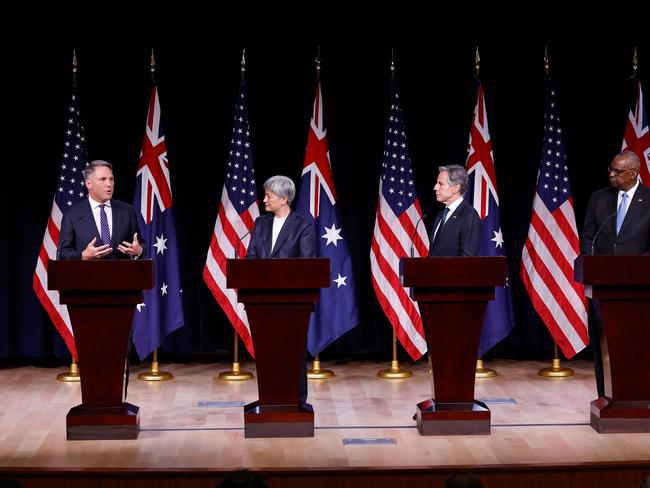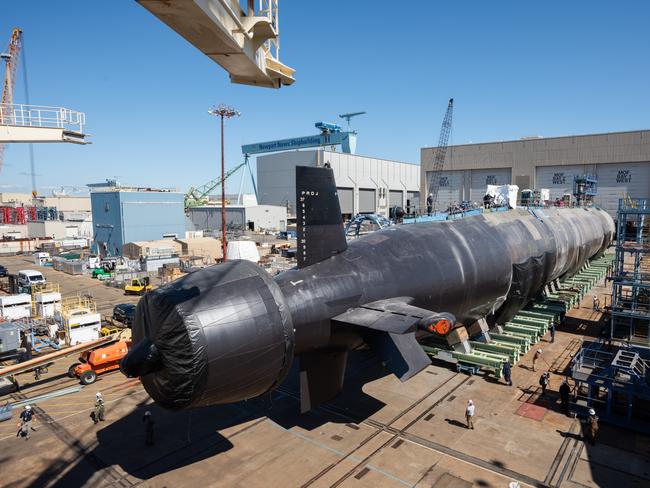Australia, the UK and US sign deal to make AUKUS nuclear submarines pact official
The move that has been heavily criticised by China will go ahead after Australia, the US and the UK officially signed off on a landmark deal.
World
Don't miss out on the headlines from World. Followed categories will be added to My News.
Australia, the US and the UK have signed a critical deal to make the AUKUS pact a reality, officially approving Australia’s access to the nuclear-powered crown jewels of America’s military might.
Deputy Prime Minister Richard Marles signed the legal agreement between the AUKUS partners in Washington DC this week, which formally enables the transfer of at least three Virginia-class nuclear submarines from the US to Australia in the 2030s.
It also allows for Australia to receive the sealed Rolls-Royce nuclear reactors that will be installed in the SSN-AUKUS submarines to be manufactured in South Australia.
“This is the key foundational document which enables the AUKUS agreement,” Mr Marles said.
“It’s a very significant step down the AUKUS path and it’s another demonstration of the fact that we are making this happen.”


The sale of the Virginia-class submarines to Australia will still remain contingent on the US president at the time of the transfer in the 2030s affirming that it does not degrade America’s military capabilities.
And while the Australian government remains confident the potential re-election of Donald Trump would not scupper the deal, he is yet to publicly explain his position on AUKUS. His running mate JD Vance has described himself as “a fan of AUKUS”.
In a statement, US President Joe Biden said the agreement was “essential to enabling our co-operation” under AUKUS, and would also “permit co-operation that would further improve our mutual defence posture and support our interests” under the ANZUS and NATO treaties.
It is expected to be provided to the US Congress this week and then tabled in the Australian parliament as early as next week.
Prior to the unveiling of AUKUS almost three years ago, the US had previously only agreed to share its naval nuclear propulsion technology with the UK back in 1958.
Mr Marles said the deal also formed “the legal underpinning of our commitment to our international obligations” on global nuclear non-proliferation, explicitly ruling out Australia enriching uranium, reprocessing spent nuclear fuel or acquiring nuclear weapons.
Speaking separately at the Center for Strategic and International Studies after this week’s AUSMIN meeting between US and Australian leaders, the Defence Minister described the submarine plan as “the biggest leap in our military technology maybe since the creation of the navy in 1913”.
“The sheer challenge of that is enormous … Sometimes the size of it is not properly understood,” he said.

Mr Marles maintained Australia would fund and deliver on its AUKUS commitments – which are expected to cost up to $368 billion – but acknowledged that “winning public money for defence is a fundamentally hard thing to do”.
“The commentary that says it should be so much more misses the obvious contest around the pressing needs a government has,” he said.
He painted Australia’s nuclear submarine acquisition as vital in the context of China’s unprecedented military build-up, which he said “presents a challenge for a country like Australia that is deeply dependent on the rules-based order”.
“Freedom of navigation is kind of everything for us,” Mr Marles said.





